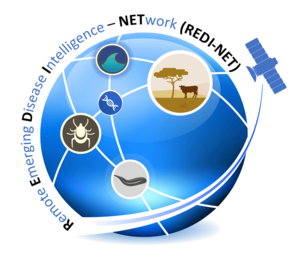About

Interested in partnering with REDI-NET? Please email: redinet@nd.edu.
What is the REDI-NET?
- The Remote Emerging Disease Intelligence-NETwork (REDI-NET) is envisioned as a long-term, phased initiative to develop a collaborative network among domestic and international partnering institutions to address surveillance needs to effectively DETECT, PREDICT, and CONTAIN potentially emergent zoonosis of human relevance and improve the accuracy and timeliness of the 'data-to-decision' pipeline.
- REDI-NET leverages, coordinates and integrates pre-existing and novel, real-time domestic and international xenosurveillance efforts to optimize pathogen discovery and provide a one-stop shop for health decision-makers.
What is the Relevance?
- Surveillance efforts are often narrow in scope (targeting a predetermined cohort of biological samples and testing for known pathogens).
- Lack of capacity at the source of sampling is problematic as surveillance reports can be seriously delayed while samples are sent to overloaded reach-back laboratories, where it can take weeks or months to be processed with data release occuring many months later.
What is the Background?
Many emerging diseases arise when infectious agents in animals are passed to humans. As the human population expands in number and into new geographical regions, the possibility that humans will come into close contact with animal species that are potential hosts of an infectious agent increases. When that factor is combined with increases in human density and mobility, it is easy to see how this combination poses a serious threat to human health. For example:
Epidemics of emerging and exotic nature are becoming more frequent and diverse worldwide and these outbreaks will inevitably continue into the foreseeable future.
Surveillance efforts are often narrow in scope targeting a predetermined cohort of biological samples and testing for known pathogens. Lack of expertise at source, complexities in data release and cold-chain shipping, and serious delays at overloaded laboratories cause results to take weeks or months to be processed. To overcome these obstacles and effectively DETECT, PREDICT and CONTAIN potentially emergent zoonosis of relevance, we need to radically change our current approach to improve the accuracy, comprehensiveness, and timeliness of the ‘data-to decision’ pipeline.
How is the REDI-NET Novel?
- A new flexible, scalable, and expandable computing substrate - 'a system of systems' - founded on Next-Generation Sequencing (NGS) upon which a myriad of global health computing platforms has been developed, customized, and integrated to support specific modeling, prediction and policy decisions.
How does REDI-NET Work?
- Program partners are academic institutions, governmental agencies, international field stations, and NGOs that serve integral roles in program implementation.
- Gold reach-back labs have developed field-ready, robust SOPs for remote nucleic acid based pathogen detection and perform confirmatory Next Generation Sequencing.
- Silver and Bronze labs implement field surveillance and laboratory testing to characterize naturally occurring pathogens in temperate, tropical forest, and tropical grassland sites.